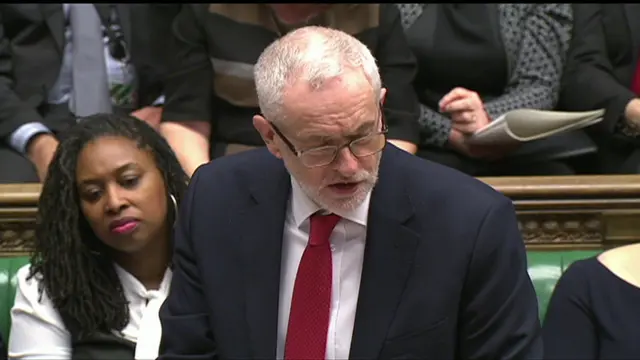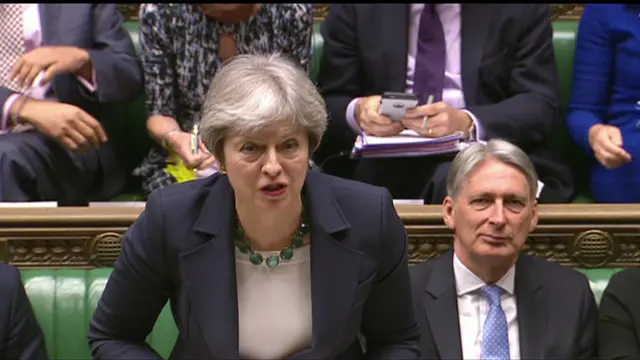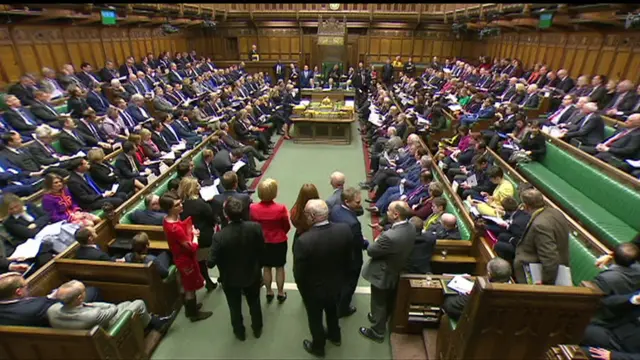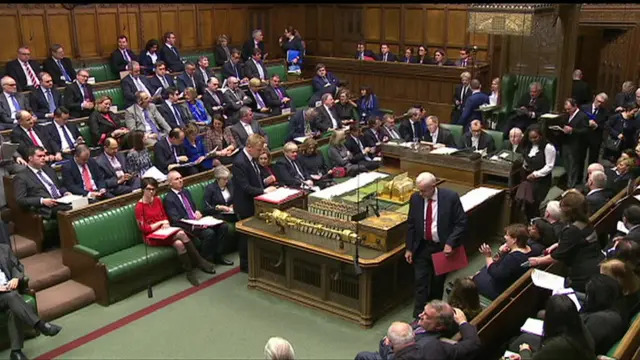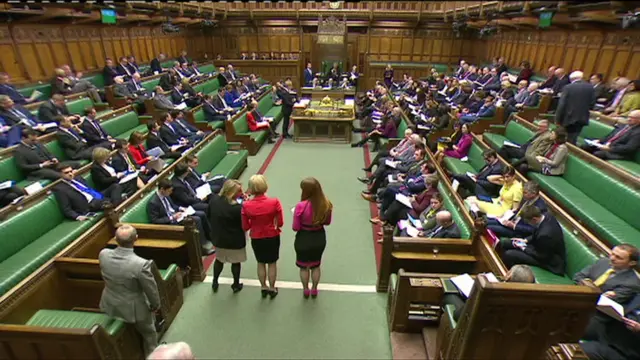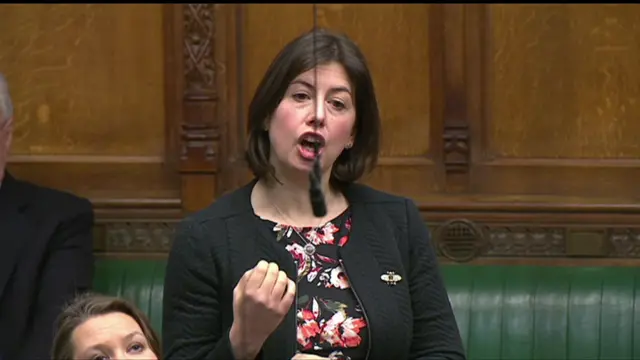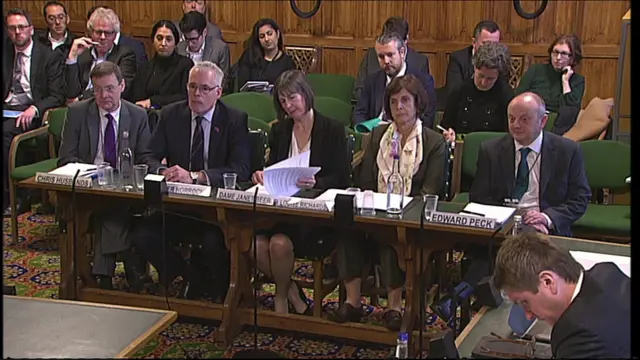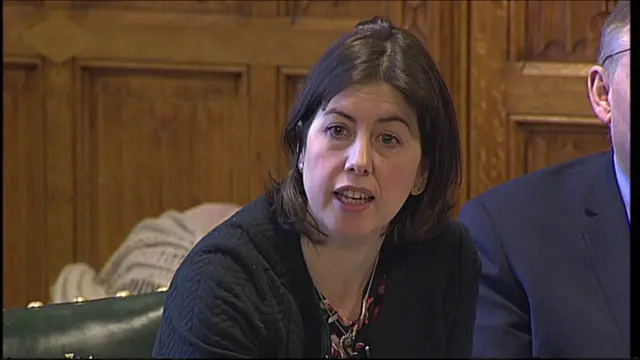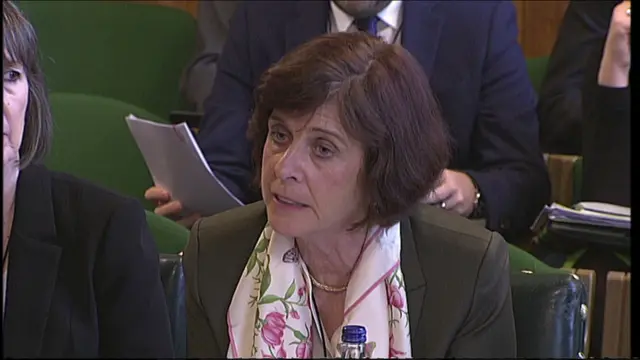May: We haven't 'abandoned negotiating position'published at 12:13 GMT 21 February 2018
Prime Minister's Questions
 House of Commons
House of Commons
Parliament
In his third question, Jeremy Corbyn raises alleged comments from ministers about the EU working time directive being scrapped.
He goes on to talk about the government downgrading aims for "tariff free trade with EU" to trade that's "as tariff free as possible" and asks why the government has "abandoned that aim?"
Theresa May says the government has "not abandoned its negotiating position". She adds that she's clear that the government will protect worker's rights.
